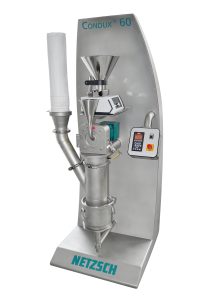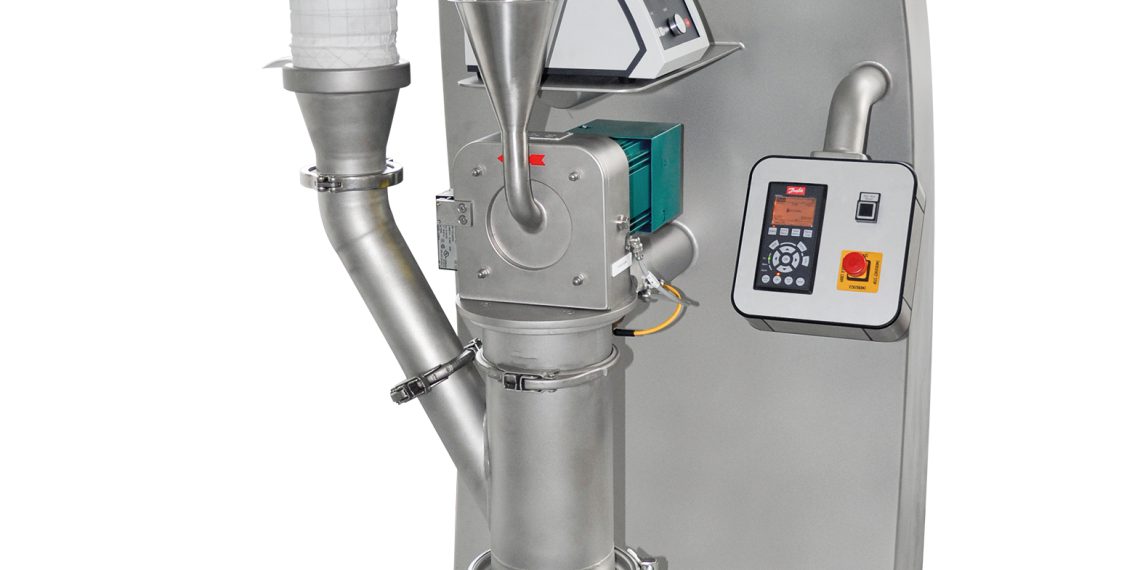The area of fine-grinding has a special role within the process chain in food production, as here the product determines the technology to be used as in no other processing step. The processes of grinding basically differ depending on the required final finenesses and the material structure. Whereas when processing gelatine, it is often possible to obtain the desired fineness of around 600 μm (d97) using an Impact Mill, the Chlorella algae with final finenesses of down to approx. 7.5 μm (d50) for which demand is steadily increasing in Europe, can only be obtained using High-Density Bed Jet Mills. On the other hand, for example, when sugar is ground to obtain confectioner´s sugar, which has an average final fineness of 100 μm (d90), in this case the particular focus is on the further processing of the product. This means that the grinding systems used must be particularly reliable so as not to delay the downstream processes.

To meet these diverse demands the Netzsch company has a broad product portfolio at its disposal, which includes grinding systems for numerous different applications. On its exhibition booth at this year´s Anuga, Netzsch Trockenmahltechnik GmbH from Hanau, Germany will exhibit two newly developed system solutions which are used in the food industry.
The CONDUX 60 Fine-Impact Mill is the smallest complete grinding plant currently available on the market. This mobile system can fit through any standard commercially available door and can be fitted with various grinding tools and stators to suit the application. For this reason, the CONDUX 60 is particularly suitable for the flexible lab scale production of materials with a Mohs hardness of up to 3 — 3.5, for feasibility studies or for the manufacture of smaller product charges.
Another highlight which will be exhibited on the Netzsch-exhibition booth in Cologne is the CONDUX Fine-Impact Mill with new tools. This proven system is equipped with a grinding disc with grinding track as well as an integrated dynamic air classifier. It use can be particularly efficient if the desired final fineness cannot be guaranteed with conventional screenless pin mills or blast mills equipped with screens. This version of the CONDUX combines high finenesses (< 30 μm) with an exact upper particle limit in an easy-clean and low-maintenance system. Unlike conventional classifier mills with two drives, the grinding disc and classifier wheel are torque-proof connected and driven by one mutual drive motor. In addition to this, by altering the height of the classifier wheel a variable adjustment of the separation limit can be carried out in the simplest way possible.
This and many other solutions from the areas of grinding, mixing, dispersing, deaerating and classifying in the food-processing industry are waiting to be discovered by visitors to the Anuga FoodTec 2018.
Visit Netzsch at Anuga Foodtec: Hall 10.2, Stand C080 C088

















